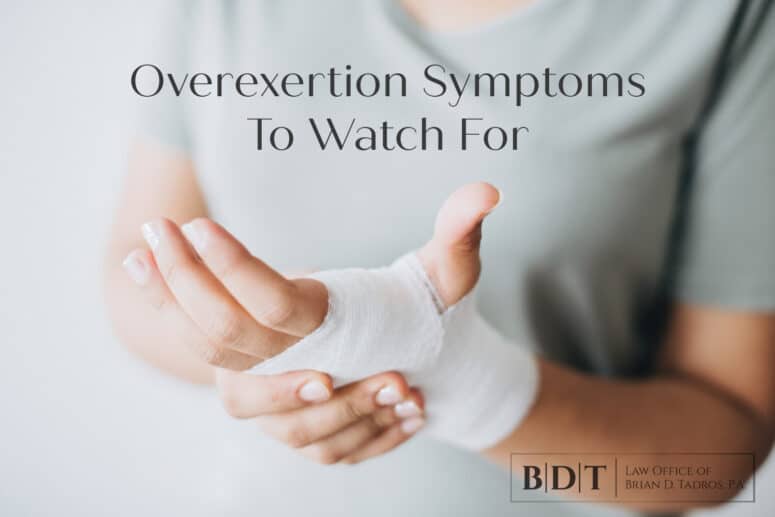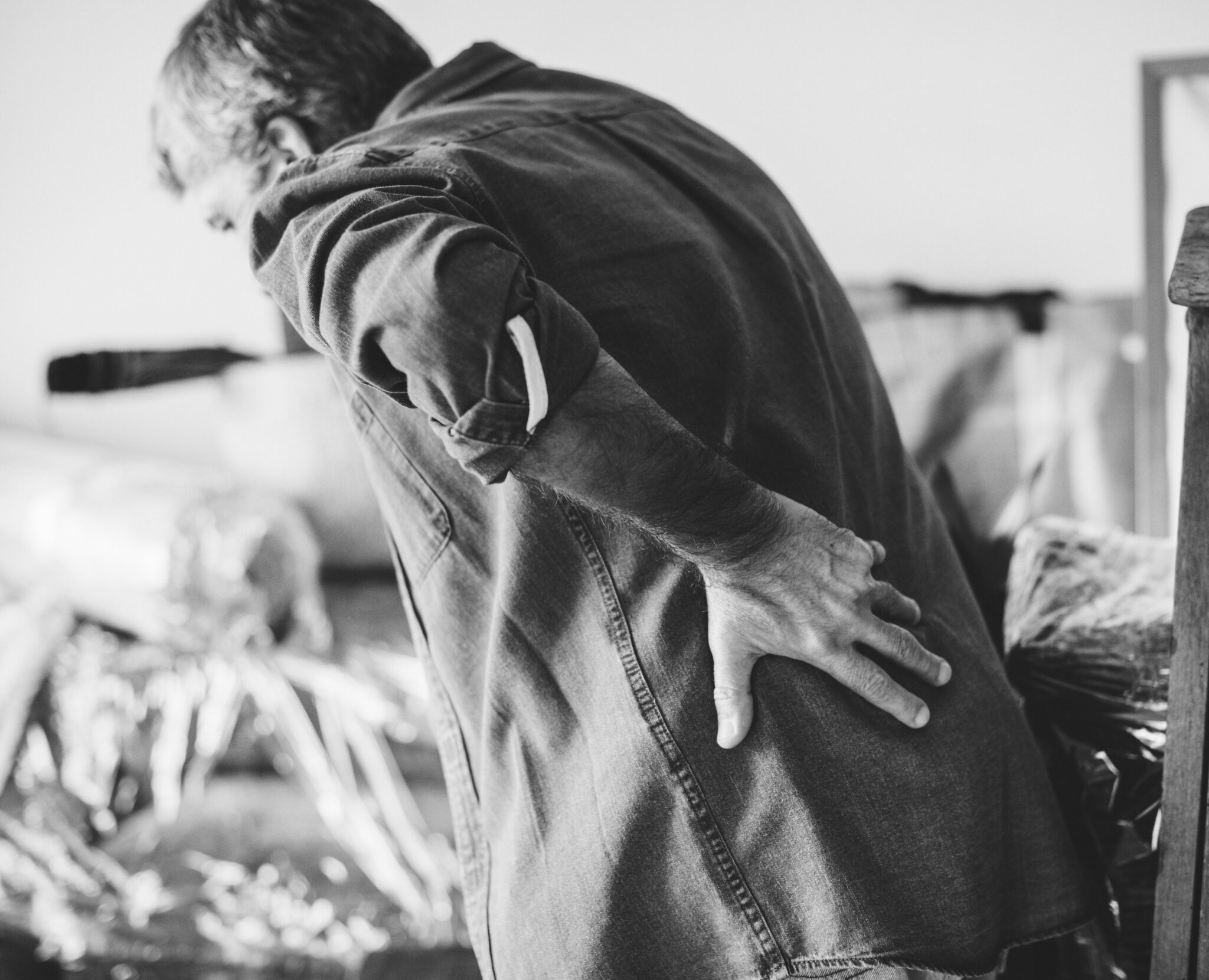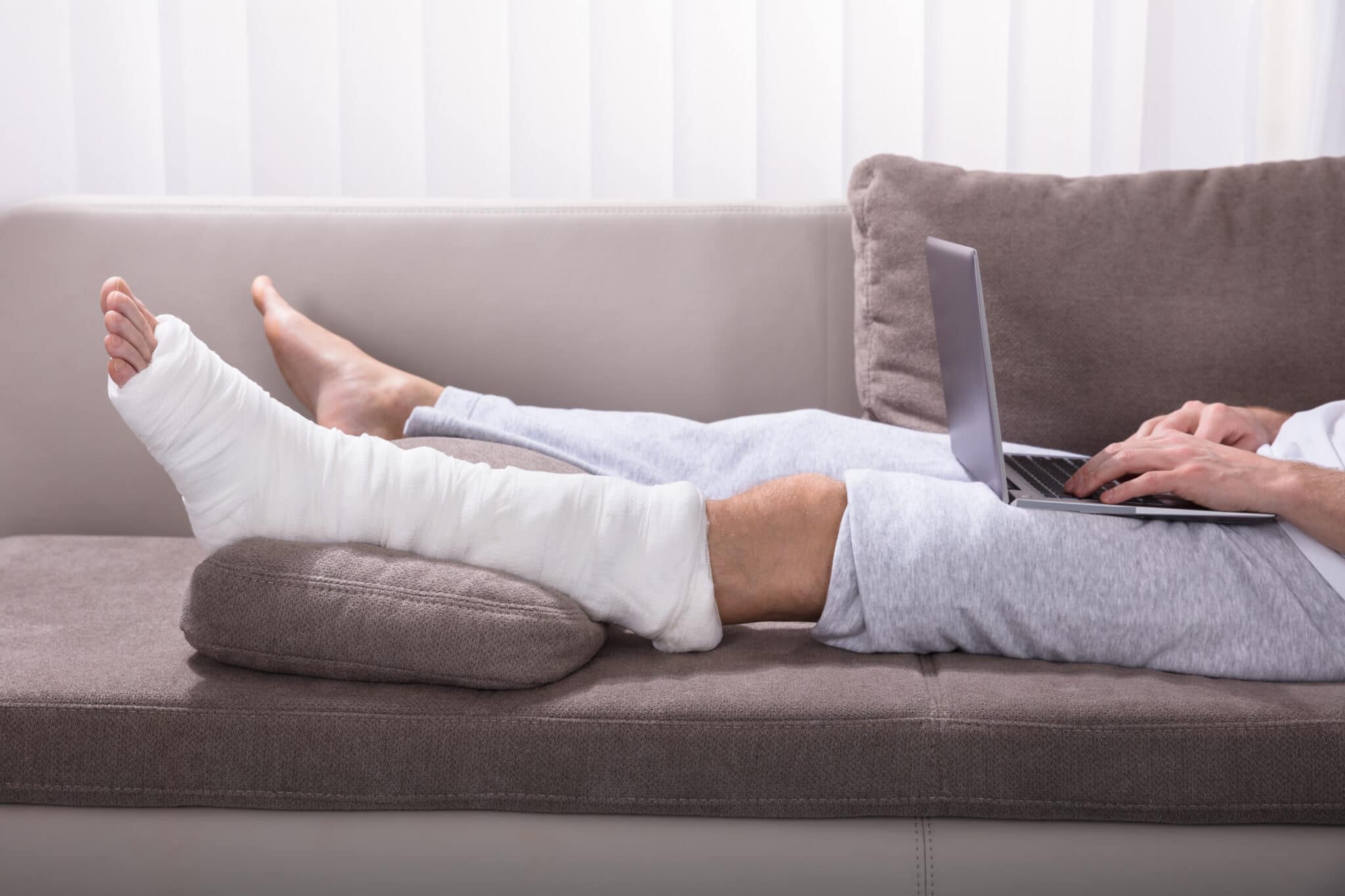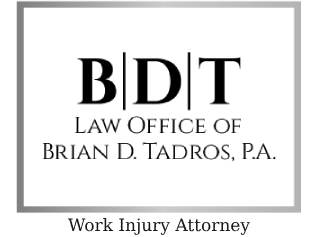
Give it all you’ve got. Shoot for the moon. Push yourself.
These are all common motivational encouragements that we say to others and ourselves to reach the best results, either at the gym or the workplace.
But there are a few reasons that it might not be the best advice after all.
According to Liberty Mutual’s 2019 Workplace Safety Index and the National Safety Council, “overexertion” remains the leading cause of workplace injuries in all industries.
So, while you might have thought you were “injury-proof” at your office job, you should still be concerned about injuries and illness caused by workplace overexertion.
What is Overexertion?
We typically use the word “overexertion” to indicate exhaustion, but the medical definition is a little different. Put simply, “overexertion” occurs when you push your body beyond its limits.
Typical signs and symptoms of overexertion are pain and inflammation, although exhaustion may be your first sign that your body is reaching its breaking point.

Struggling to lift or push a heavy box, typing for hours at a time with no break, even walking can lead to a workplace injury if you do it long enough.
Overexertion injuries can be categorized into three main types:
- Excessive physical effort directed at an outside source (for example, a heavy box);
- Excessive physical effort involving free bodily motion (such as bending or kneeling); and
- Repetitive motion (such as typing or using a computer mouse).
Injured at Work In Florida?
Types of Overexertion Injuries
In the United States, we have a “work hard, play hard” mentality. But the damage done by working too hard should not be trivialized.
Here is a list of just some of the injuries overexertion can cause:
- Muscle sprains, strains, and tears
- Tendinitis / Tendonitis
- Carpal Tunnel Syndrome
- Heat Exhaustion
- Dehydration
- Joint Dislocations
- Torn Meniscus
- Herniated Discs
- Stress Fractures
Overexertion Symptoms
It can be difficult to know when you’re in danger of overexertion (especially if you’re focusing on meeting a deadline or impressing your supervisor). But staying at the top of your game will be impossible if you’re propped up in bed with a cast on your leg.

Monitor yourself and your coworkers for common signs of overexertion. Fatigue, dizziness, muscle soreness, dehydration and struggling to catch your breath are all signs that you may be burning the candle at both ends.
Pain is also a very common symptom of overexertion, as this is the best way for your body to alert you to a potential injury.
The reason pain exists is to prevent injury. Your muscle hurts when you stretch it too far because going further could cause a sprain or tear. It hurts to drop a heavy box on your foot because continuing to do so could break a bone or cause some other injury.
If you are feeling excessive pain or discomfort during your workday, that could be a sign that you are overexerting yourself.
How to Treat Overexertion
Overexertion treatment isn’t always as simple as “go home and get some rest.” In some cases, you may require emergency medical treatment or even surgery.
If your injuries prevent you from keeping up with your day-to-day lifestyle, you should file a workers’ comp claim and seek medical attention as soon as possible. Your authorized treating physician will treat your health conditions differently depending on which parts of the body are affected.
Overall, the best treatment for overexertion is to give the injury time to heal. The RICE method is universally recommended.
- Rest the affected area.
- Apply ice to reduce inflammation.
- Wrap the injured body part in a compress.
- Elevate the area to reduce swelling
Preventing Overexertion
Once you have been cleared to return to work, it is important that you follow the necessary steps to avoid overexertion in the future. The baseline rules of staying healthy still apply—drink water, get eight hours of sleep, and attend to your mental health. But while at work, the most important advice is to listen to your body.
Many people become injured in the first place because they don’t pay attention to the warning signs their body is trying to send them. Remember, pain is never “normal”; it’s the body’s way of alerting you that something is wrong (and telling you to stop doing it)!
The first step is to follow all proper safety precautions. If your employer offers equipment to make your job easier (whether it be a back brace or a forklift), use it.
Second, use proper techniques when it comes to lifting, carrying, and other body mechanics. Lift with your legs, set up an ergonomic workstation, and change your position frequently so that you’re not performing the same action for too long.
Lastly, take a rest from physical activity at regular intervals and whenever you feel the signs of overexertion, especially when doing repetitive tasks. Pushing yourself past the breaking point will only increase the likelihood of an injury.

As the saying goes, “An ounce of prevention is worth a pound of cure.” And when it comes to workplace injuries, this is invaluable advice.
Overexertion injuries cost an estimated $13 billion a year and can have lifelong effects on your health, so anything you can do to prevent such injuries from occurring are worth the effort.
Is Overexertion Covered By Workers’ Comp?
Yes, overexertion injuries are covered by workers’ compensation insurance. However, it can be difficult to “prove” that your symptoms of overexertion are caused by your work duties or that you even have an injury at all. You might even be experiencing pain and symptoms that you don’t know are related to workplace overexertion.
In fact, many cases of overexertion are denied by insurance companies or employers and must be challenged by an experienced workers’ compensation attorney. Your work injury lawyer is the best resource you have throughout your workers’ comp case, as they have the knowledge necessary to advise you on every step.
If you have been injured as a result of workplace overexertion, the Law Office of Brian D. Tadros Orlando Workers Compensation Attorney is available for a free consultation.

